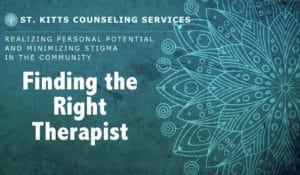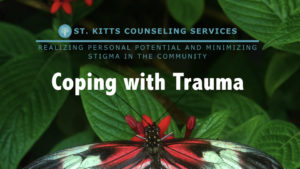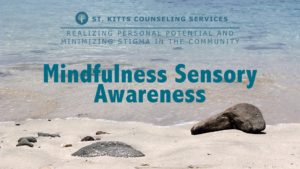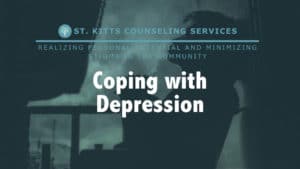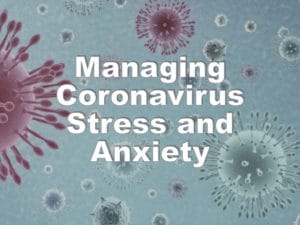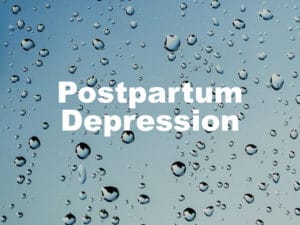
What is infidelity?
Healing from infidelity can be one of the most difficult experiences a couple can go through. The term ‘infidelity’ is understood differently across individuals and across relationships. That being said, infidelity commonly refers of a breach to the expectation for sexual monogamy. It can also include emotional relationships that are beyond the scope of ‘friendship,’ or online relationships. Even in the case of ‘open relationships,’ infidelity can occur when there is a breach to the established guidelines of the relationship. This definition of infidelity is something that is determined within the context of each individual relationship.
Does infidelity mean your relationship is over?
When confronted with information about an affair, it is common to initially believe your relationship is over, and among those who divorce, infidelity is cited as one of the major reasons. While you may decide that the relationship is over, the majority of couples who have experienced infidelity choose to stay together. Depending on the causes of the infidelity and a couple’s willingness to commit to the work required, couples that have experienced infidelity can heal.
If you choose to remain together and work through the affair, know that the process will be difficult but couples can come through. Navigating the process of healing from infidelity is complicated; however, with the correct tools and support, many couples can heal, and can even experience an improved relationship, something that may seem extremely hard to imagine if you are newly confronted with information about an affair.
Infidelity does not necessarily have to mean that the relationship is over
Couples that have experienced infidelity can heal and come through, sometimes even stronger. Know though that this process is not easy.
The process will require time, effort, the reestablishment of commitment, and the ability to tolerate both your painful emotions and those of your partner. It will also be important to get the right support. While some couples chose to work independently through an affair, it can be helpful to seek help from a couples therapist. Unfortunately, many people experience such shame after an affair that they do not seek support for fear of this information being known to others.
Time needed to heal from infidelity
The healing process after infidelity will take time. While all relationships are unique, generally, complete healing from an affair is likely to take minimally two years. Much like grief, it is normal for both persons to feel strong waves of emotions. This can look like periods of feeling as if the affair is in the past, to feeling strong anger, fear, shame, insecurity or sadness, and back again. It is important to have patience for this process, and tolerance for the pain you and your partner are experiencing.
Healing from infidelity is likely to take at least 2 years
Much like grief, healing from infidelity takes a great deal of time and cannot be rushed.
In the healing process after discovering infidelity, many aspects of the affair and relationship will need to be addressed. This includes increasing trust and honesty, changing problematic communication or interactional patterns, improving emotional, physical and sexual affection, and increasing empathy for your partner when ready. These aspects will need to be worked through carefully. Attempting to rush this process is not likely to work.
Regaining Trust after infidelity
Regaining trust after an affair is an essential aspect of healing. Both persons need to feel that the other has committed to the relationship, and that they are working to increase trust. While the betrayed partner will need some reassurances that the partner is remorseful, has taken responsibility, and is committed to improving the relationship, the person who had the affair also needs to know that their partner is working to trust again, and recognizes their efforts to improve the relationship.
Taking responsibility
An important part of healing from an affair is for the unfaithful partner to take responsibility for going outside of the relationship. This aspect is extremely important, for both the betrayed and the unfaithful partner.
Taking responsibility and committing to healing also means that the one who had the affair will need to cut ties to the person he/she had the affair with. When this is not possible, clear boundaries or limits to further contact should be set, and a plan should be made for how to communicate further interactions to the betrayed partner.
Demonstrations of remorse can vary
Sometimes the unfaithful partner does not show remorse in a way that the betrayed feels is sufficient but with time and/or assistance this can grow.
Additionally, the unfaithful partner will need to provide information to their partner about the affair and should work to show remorse. In the case of remorse, keep in mind that oftentimes the unfaithful partner does not initially show remorse in a way that the betrayed feels is sufficient. Although not initially demonstrated or perhaps even felt, with time and assistance, feelings and demonstrations of remorse are likely to grow.
While difficult to initially consider, it is eventually important for the couple to recognize that the affair occurred within the conditions of the relationship, or the context of the relationship. This is not at all to say that the affair was the fault of the betrayed, or even that something was wrong with the relationship. In order for healing from infidelity to occur though, the conditions of the relationship will eventually need to be worked through and improved upon. Importantly, this should occur only after the initial crisis phase of finding out about the affair. Pushing to address this earlier is very likely to be detrimental to the relationship and healing process.
Does all the information about the infidelity need to be known?
Although it is normal for the betrayed to want to know all the details about the affair, this is not always helpful. For some people, hearing all the details can feel almost re-traumatizing; however, for some, having more information can help as he/she seeks to understand, or make sense of their life and the affair. When discussing the affair, it is important for the betrayed person to ask him or herself whether hearing explicit details has helped or hurt, and then work to limit exposure to details if it has hurt. This is easier said than done, as in those moments the betrayed may feel almost impulsively the desire to ask for more details. Instead, it may be helpful to obtain the necessary information, and work to remind oneself that perhaps this amount of information is sufficient.
Sharing information honestly about the infidelity is important
When discussing information related to the infidelity the betrayed should carefully weigh whether this information is helpful.
Going forward, new ways of interacting with each other are needed, something that can be made extremely difficult when one partner is obsessively replaying vivid details or images of the affair. That being said, a minimum amount of information is necessary, and without obtaining that information, one may later feel regret for not having all the relevant information in order to make a decision about how to move forward. It is best if the unfaithful spouse immediately shares information honestly. More damage can occur if the betrayed finds out that information shared initially was also not truthful.
Ignoring or not talking about infidelity
Ignoring or not talking about infidelity is especially problematic. When a couple takes this route, feelings of resentment, loneliness, sadness and anger are likely, and issues related to trust cannot be resolved. This route is likely to result in direct expression of negative emotions, or more passive demonstrations – both being problematic to the relationship. Ignoring the existence of infidelity does not foster resolution of painful emotions, encourage responsibility taking, or allow for understanding the context of the affair, improve communication, or increase connection. It will also not result in changing the culture of the relationship to one of truth telling.
Containing discussions related to the infidelity
 While not talking about the infidelity is problematic, it can also be problematic to talk about the infidelity all the time. Although commonly couples speak extensively about the infidelity when it is first discovered, it can be best to contain these discussions to specific and limited times, or to discuss the infidelity only in therapy sessions. As time goes on, it will be important to learn to view the infidelity as part of your relationship, not your whole relationship — when discussions about the affair occur “all the time,” this is made difficult.
While not talking about the infidelity is problematic, it can also be problematic to talk about the infidelity all the time. Although commonly couples speak extensively about the infidelity when it is first discovered, it can be best to contain these discussions to specific and limited times, or to discuss the infidelity only in therapy sessions. As time goes on, it will be important to learn to view the infidelity as part of your relationship, not your whole relationship — when discussions about the affair occur “all the time,” this is made difficult.
It can be helpful to contain discussions about the infidelity
Making agreements about when, how often, and what aspects of the infidelity will be discussed is helpful.
When talking about the affair, it can be helpful for the betrayed to share what they are going through emotionally, and when feeling insecure, let your partner know what specifically would help you. Although sometimes overlooked, it is also helpful to discuss how the person who had the affair is coping, as oftentimes this person is also going through very painful emotions, including shame, hopelessness and fear that their efforts will not be sufficient.
Keeping tabs on you partner

Oftentimes the betrayed wants to increase monitoring of the partner who had the affair, which is understandable after feeling that your trust has been betrayed. Although this response is understandable, increasing monitoring of your partner is not likely to be helpful. Ultimately, one important goal of healing from infidelity is to learn to tolerate that you may not know all about your partner, and in that space of not knowing, you can tolerate not being able to control your partner’s behavior. Efforts to control your partner are likely to result in decreased intimacy from the unfaithful partner, an undesirable outcome when working to improve a relationship. That being said, when the unfaithful partner is resistant to behaving in a less secretive or private manner, it may be helpful to better understand reasons for this.
Secrecy about the Infidelity

Couples sometimes decide to keep the affair secret, which can be problematic, as couples are then in the position to pretend to others that the relationship is okay. While it is also perhaps not best to share the infidelity with everybody, it is recommended that the couple gain support from trusted family members, friends, a spiritual leader, or a therapist. It is best to seek support from those who are not likely to be judgmental, critical, or biased.
Planning for the Future
An important phase of healing from infidelity involves planning for the future of the relationship. This entails planning for how to support each other so as to prevent an affair from occurring again, and maintaining the improvements that have been made.
Can couples therapy help?
Infidelity can be one of the most difficult experiences a couple can go through. As can be seen, navigating healing from infidelity is a complex task. While some couples are able to manage this independently, for some it can be helpful to participate in couples therapy. Depending on the situation, sometimes individual therapy may be preferable, an option that you can discuss with your therapist.
Dr. Pereira is experienced in working with couples that are coping with infidelity. She is also experienced in providing individual therapy to those who have been betrayed and those who have had affairs.
Contact Dr. Pereira
Contact Dr. Pereira at (869) 668-4646 to discuss your difficulties or to schedule an appointment. Call today to get started feeling better.

